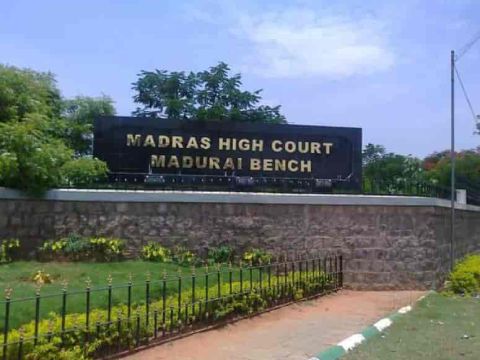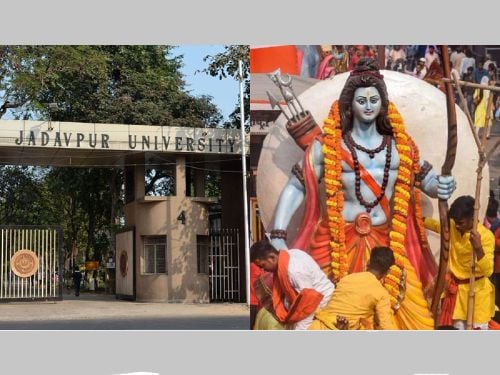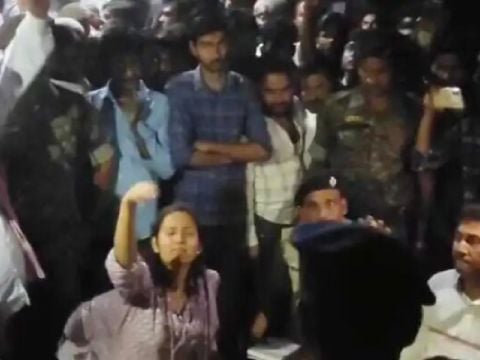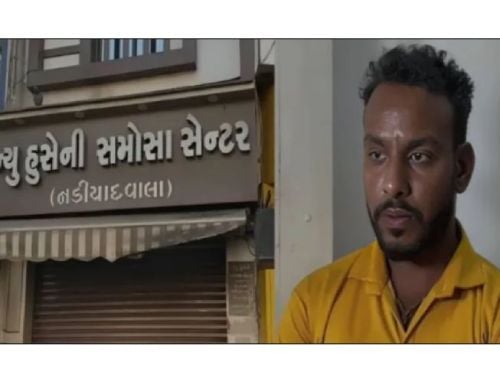
On Friday, December 2, 2022, the Madurai bench of the Madras High Court instructed the Tamil Nadu state government to prohibit the use of mobile phones by devotees inside temples. The court said that mobile phones should be banned in temples in order to maintain the purity and sanctity of the places of worship. The court ordered this directive in response to a petition filed by a temple priest of Subramaniaswamy Temple in Tiruchendur, Thoothukudi district, seeking a direction to the State to prohibit the use of mobile phones inside the temple.
Madurai bench of Madras High court directs the Government of Tamil Nadu to prohibit devotees from taking mobile phones inside all temples in the state in order to "maintain the purity and sanctity".
— ANI (@ANI) December 2, 2022
M. Seetharaman is a temple priest of Subramaniaswamy Temple in Tiruchendur in Tamilnadu. He filed this petition in November 2022. In his plea, he contended that the temple was an ancient temple and that agama rules played a vital role in the worship and administration of the temple. Every Hindu temple’s Agama laws forbid the use of cameras to photograph the god and the rites conducted to the deity. Therefore, the temple management does not allow the use of still or moving cameras inside the temple.
“However,” the petitioner said, “Nowadays, mobile phones are used to take snaps and for video coverage. Devotees are taking snaps of idols and pujas. Temple staff face hardship as a result.” The petition had said that as visitors take selfies and make videos in the temple using their phones, they obstruct other devotees, and hamper religious functions.
He added, “The Hindu Religious and Charitable Endowments Department has taken efforts to restrict worshipers from taking cell phones into Madurai’s Meenakshi Sundareswarar Temple. Separate locker rooms have been established outside the temple premises. The same should be done at Tiruchendur’s Subramaniaswamy Temple.”
Subramaniaswamy temple authorities informed the court that already measures are being taken to prevent the use of mobile phones in the temple. They told the court that security rooms have been arranged to store the phones of visitors and a system of issuing tokens has been established. The response filed by the temple management said that since November 14, both visitors and temple staff are not allowed to carry mobile phones inside the temple premises. People also have been appointed to monitor the use of phones inside the temple premises. The temple authority also said that they have also implemented a dress code for devotees.
“Notice boards warning, not to take cellphones in and if cellphones are found in possession inside the temple, it shall be seized and will not be returned and this information is also announced in public address system,” Subramaniaswamy temple’s executive officer said. The officer further added, “Devotees who come to the temple should wear attire that protects our tradition and culture and these information boards are placed in the temple.”
Considering this response from the temple, the High Court bench closed the case, and ordered the Hindu Religious and Charitable Endowments Department to ban phones in all the temples of the state to maintain purity and sanctity.
It is notable that the petition was filed for banning phones only in the Subramaniaswamy Temple in Tiruchendur, but the High Court decided to implement it in all temples in the state.
Source: OpIndia

 Jadavpur Univ revokes permission to celebrate Ram Navami on campus after granting it
Jadavpur Univ revokes permission to celebrate Ram Navami on campus after granting it Andhra Pradesh: Farooq kills mentally challenged Hindu man for insurance money
Andhra Pradesh: Farooq kills mentally challenged Hindu man for insurance money Pakistan: Ancient Hindu temple in Khyber Pakhtunkhwa demolished for commercial complex
Pakistan: Ancient Hindu temple in Khyber Pakhtunkhwa demolished for commercial complex Bihar: Goddess Bhagavati Temple in Araria vandalised and deities damaged
Bihar: Goddess Bhagavati Temple in Araria vandalised and deities damaged Vadodara: Beef supplier Imran Qureshi arrested in beef-stuffed samosa case
Vadodara: Beef supplier Imran Qureshi arrested in beef-stuffed samosa case After Idukki diocese, Syro Malabar Catholic Church’s Thamarassery diocese screens ‘The Kerala Story’
After Idukki diocese, Syro Malabar Catholic Church’s Thamarassery diocese screens ‘The Kerala Story’